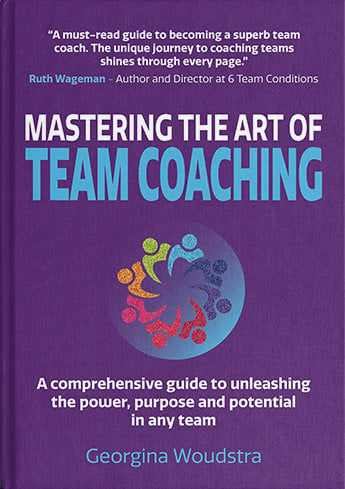A good team coaching session is a courageous dialogue. And in this dialogue, we expect our teams to show up with courage—enough courage to extract themselves from the gravitational pull of their comfort zone. Likewise, we need to show up with courage ourselves. Team coaching is not for the faint-hearted! And it comes as no surprise that many a masterful coach will include the word “bravery” in their definition of coaching.
But courage and bravery don’t come easy! If we accept Kurt Lewin’s (1890-1947) proposition that our behaviour is manifested only within coexisting factors of our current “life space” or “psychological field”, behaviour can be expressed as a function of that living space. Furthermore, the interaction of the person and the environment produces this living space. In simpler terms, the person and their environment mutually mould each other in a loop-like fashion.
Given the importance of Lewin’s “field”, let’s look at our own context, our 21st-century western societal life space. Even though we live longer than ever before and security surrounds us, we quickly believe that there is a lot to fear. There no longer seems to be anything that is really secure. On the whole, we seem to be obsessed with every conceivable danger.
In “A Philosophy of Fear” (2008), Lars Svendsen (professor in the Department of Philosophy at the University of Bergen, Norway) explores the underlying ideas and issues behind this powerful emotion as he investigates how and why fear has insinuated itself into every aspect of modern life. He concludes that “fear has become a basic characteristic of our entire culture.”
We engage in worst-case thinking and side with caution at every opportunity we get. It’s as if safety were a new religion, at least an obsession. Rules and restrictions abound and contribute to a general culture of fear! We are creating a fear-infected, courage-eroding, crippling society as if we were under the spell of an invisible pessimistic pull.
In How Fear Works: Culture of Fear in the Twenty-First Century (2019), Frank Furedi (University of Kent) seeks to explain two interrelated themes: why has fear acquired such a morally commanding status in society today and how has the way we fear today changed from the way that it was experienced in the past? In his book, he suggests that “the flame of hope still flickers on but is increasingly overshadowed by a dark mood of intangible anxiety” and that “people are educated to be preoccupied with their safety, and to regard being fearful as a sensible and responsible orientation toward the world.”
But are we justified in being so fearful? Though we know life is unpredictable, we continue to demand zero risk. Yes, the human condition is inherently risky, uncertain and exposed. Always has been. As such, fear is not unique to our society. But in our not-so-distant past, it was counterbalanced by hope, and courage was held in high regard. “Fortune favours the bold proclaimed the roman poet Vergil: Audentis Fortuna Iuvat. Uncertainty was considered an opportunity. Risks were worth taking and seen as a direct path to building character and greatness. Today, risk-takers are often labelled foolish or selfish and dangerous to self and others.
We must urgently remind ourselves that we are perhaps more resilient than we give ourselves credit for and start cultivating a more courageous outlook on the future. “Must we be defined by our vulnerability?” asks Frank Furedi. And he concludes by reminding us that “whether we adopt the philosophy of precaution or embrace a more courageous risk-taking approach depends on how we perceive what It means to be human.”
Remember, Lewin also found that a person’s psychological state influences their social field. So, what would happen if we showed up with more courage? For the good of our teams, our conversations, and our psychological field at large.
Invitation to dialogue: “How do YOU show courage in the work you do? And “how can YOU mould your environment so that it spurs you on to (even) more courage?”



